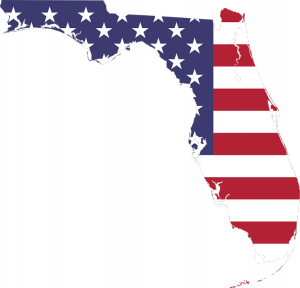Florida Workers Comp Rates 2019 are headed in a positive direction.
In 2019, Florida Workers Comp Rates are improving for the business community throughout the state. The decline amounts to a deduction of 13.9% and will contribute to a savings for business in Florida of approximately $454 million. This is good news because the Florida Workers Compensation System has been in flux for a number of years. This decrease is the third such decrease over the previous year and a half. Previous to these three decreases, the workers compensation rates had increased by 14.5% in 2016.

What Caused Florida Workers Compensation Rates 2019 to Decrease?
Florida Workers Comp Rates 2019 are decreasing because of significant improvements in experienced losses by insurance carriers. This means the insurance carriers paid out less in claims. Some within the industry credit safer workplaces, enhanced efficiencies in the workplace, and an increase in the use of technologies for the decrease in costs.
What is Unique about the Florida Workers Compensation System?
The most unique aspect of the Florida Workers Compensation System is that Florida is a No Competition State. This means Florida is one of the few remaining states in the country where every insurance company offering coverage within the state are required to offer the same rates and discounts as all other carriers. State mandated rates mean employers do not have to shop around as much as more competitive states. Business primarily need to be concerned about finding an insurance carrier willing to offer coverage on the voluntary market with the most cash flow friendly payment options and the business needs to avoid the Florida State Fund.

Why have the Workers Comp Florida Rates 2019 Been in Flux?
For the past few years, workers compensation rates within the state of Florida have been in flux for a number of reasons. Two State Supreme Court Decisions have contributed to the instability. Those cases were Castellanos v. Next Door Company and Westphal v. City of St. Petersburg. Castellanos vs. Next Door Company made a previous 2009 ruling invalid, meaning judges no longer had to stick to the mandatory fee schedule and now can award additional compensation for attorney’s fees when offering judgments within the workers compensation system. The Westphal Case, had a ruling that ruled the 104-week statutory limitation on temporary total disability benefits is unconstitutional. This ruling extended this period to a 260-week limitation. This 260-week limit is more in line with states throughout the country and significantly increased the amount carriers had to pay for permanently disabled injured workers.
Another factor that has caused the workers compensation system in the state of Florida to be out of whack is State Senate Bill 1402. This bill accounted for 1.8% of the recent increase in premium by increasing the cost for updates within the Florida Workers’ Compensation HCPR Manual.
In addition to these issues, in 2017 the Florida Insurance Regulators took over Guarantee Insurance Company (The states assigned risk workers comp provider) because it had become insolvent. This left 1250 businesses in the state of Florida scrambling to find a workers comp carrier.

What could be in store for future rates?
Hurricane Michael Relief
In response to Hurricane Michael, Florida Governor Rick Scott issued an emergency order that make sure “additional protections” are in place for Florida policyholders – including freezing any rate hikes for 90 days.
The order requires that insurers:
- Provide an additional 90 days to policyholders to supply required information to their insurance company. Many Floridians were displaced during this dangerous storm, and providing additional time to submit information to insurance companies gives them needed flexibility.
- Rescind for 90 days all non-renewals or cancellations issued to policyholders in the days leading up to Hurricane Michael. This gives policyholders 90 days to either renew their insurance policy, or find a new policy; and
- Freeze any and all efforts to increase rates on policyholders for 90 days.
Independent Medical Review Program
Florida is looking in to implementing a 6-year-old independent medical review program for workers compensation claims. This program has been enacted by the state of California and has been a resounding success. Under this program disputes about the medical treatment of injured workers are resolved by physicians instead of by the courts. California has found this has enabled for a more efficient resolution of claims while reducing the need for lengthy and costly judicial processes.
New State Senate Promising to Revisit Florida’s Workers Comp Laws
The new President of the Senate in the state of Florida, Bill Galvano, is promising to revisit Florida’s workers’ compensation insurance laws. At a recent ceremony shortly after taking over as President of the Senate Galvano said, “I don’t want to be in a situation where they spike and then we are running to fix it at that point”. Statements like these from the leadership of the Florida legislature show the decision makers in the house are looking forward to attempt to provide a stable market for the business community and eliminate the volatility businesses have seen in recent years for Florida Workers Comp Rates.

Florida Workers Comp Requirements
There are several requirements for businesses operating within the state of Florida. First and foremost, non-construction companies with four or fewer employees are required to purchase employees. It does not matter if those employees are full or part-time. All construction related businesses are required to secure coverage no matter the number of employees within the business. Sole Proprietors and Partners are not required to cover themselves and are exempt from coverage. A corporation and LLC may exempt officers if each owner owns less then 10 percent of the stock in the business. Sole Proprietors and Partners are not required to cover themselves and they are automatically excluded. These people can elect to be covered using form DWC-251. Corporate Officers of non-construction businesses can exempt from coverage if they own stock and hold an office on the board of directors. LLC Members of non construction businesses are treated as employees, but may be exempt of they so choose.

What can Florida Business Owner do to Maximize Savings?
Shop around your Policy
It is not a wise decision to switch carriers every year for a slight decrease in premium. This is because when a claim does occur a carrier will take in to consideration how long you have been a customers of theirs when they are deciding to raise your rate or deny your business coverage. At the same time, it is important to make sure your business is getting a competitive rate. The best way to do this is to partner with an independent agent who can shop around your policy for you. This can save you time and usually result in lower premium payments on more comprehensive coverage.
Invest in Safety Protocols
Safety is the name of the game in any business. It is what is best for your employees as well as your customers. It is also important when it comes time to purchase commercial insurance. a safer business will have less claims and the claims it does have will be less severe. A small investment in a safety program can pay huge dividends when looking for the lowest Florida Workers Comp Rates.
Choose the Pay as You Go Option
Pay as You Go Workers Compensation Insurance is an excellent option for seasonal and cash strapped businesses. This option allows businesses to get coverage in place at a significantly lower rate than a traditional workers comp policy. Once a policy is in place, the premium is paid monthly based upon the actual payroll from the previous month. This is a great option if your business operates in an industry that has a hard time forecasting payroll for a number of reasons. If your payroll is significantly lower one month the payment will reflect that and the same will occur in months when your workforce represents more man hours. Finally, a Pay as You Go Policy prevents most mid-term audits from occurring because the payments are more accurate from month to month and not based upon an estimate from previous years payroll. This prevents an unwelcome surprise from occurring at the end of a term when a business under pays premium throughout the year and has an unexpected payment to end the year.

